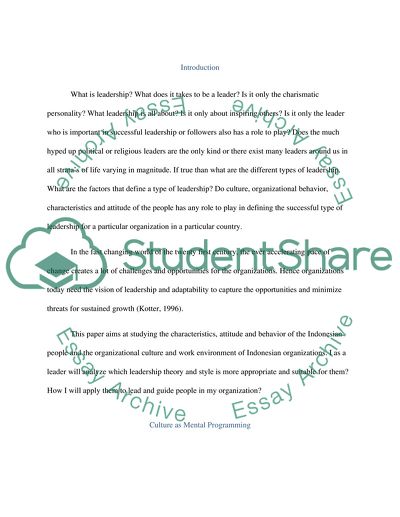Cite this document
(“Organizational Culture of Indonesia Dissertation - 1”, n.d.)
Organizational Culture of Indonesia Dissertation - 1. Retrieved from https://studentshare.org/human-resources/1751129-how-can-one-person-lead-another
Organizational Culture of Indonesia Dissertation - 1. Retrieved from https://studentshare.org/human-resources/1751129-how-can-one-person-lead-another
(Organizational Culture of Indonesia Dissertation - 1)
Organizational Culture of Indonesia Dissertation - 1. https://studentshare.org/human-resources/1751129-how-can-one-person-lead-another.
Organizational Culture of Indonesia Dissertation - 1. https://studentshare.org/human-resources/1751129-how-can-one-person-lead-another.
“Organizational Culture of Indonesia Dissertation - 1”, n.d. https://studentshare.org/human-resources/1751129-how-can-one-person-lead-another.


